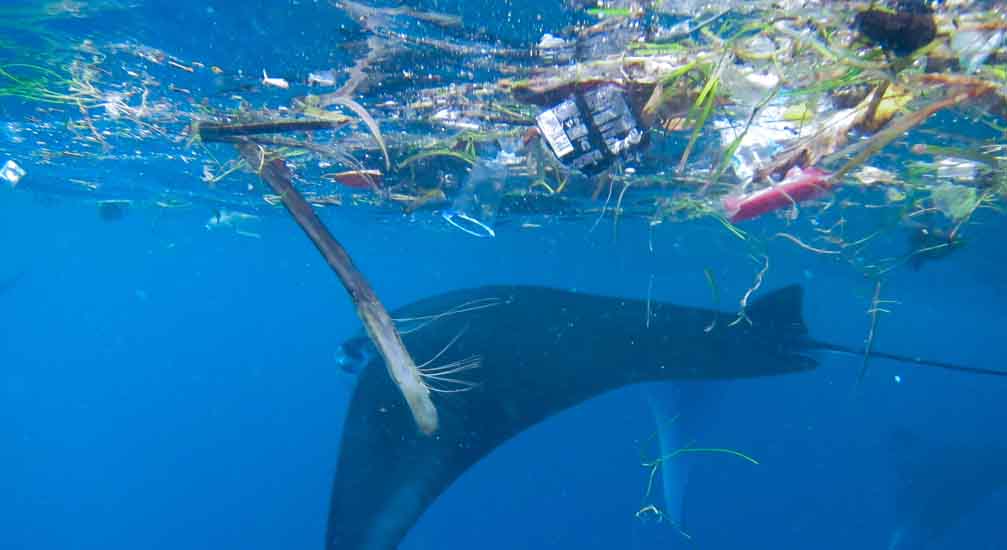According to a new study, Large filter feeders, such as whales and sharks as well as other marine species are increasingly at risk from ingesting tiny plastic particles in the ocean.
The new study which was published in the journal Trends in Ecology and Evolution, advises more research on the megafauna of the oceans, as the effects of microplastics on them is currently not well understood.
Scientists say species such as baleen whales and basking sharks, which feed through filtering seawater for plankton, are ingesting the tiny particles of plastic which now appear to permeate oceans throughout the world.
Some of these species have evolved to gulping down even thousands of cubic metres of seawater daily, but ingesting microplastic can obstruct their ability to absorb nutrients and may have toxic side-effects.
Scientists have found, for example through examining the bodies of beached whales, large pieces of plastic in the guts of such creatures, but the effect of microplastics, though less obvious, may be just as harmful.
A researcher at the Marine Megafauna Foundation and co-author of the study, Elitza Germanov, said: “Despite the growing research on microplastics in the marine environment, there are only a few studies that examine the effects on large filter feeders. We are still trying to understand the magnitude of the issue.
It has become clear, though, that microplastic contamination has the potential to further reduce the population numbers of these species, many of which are long-lived and have few offspring throughout their lives.”
Many species of whale, filter-feeding shark and rays are already under threat from other problems, such as overfishing and pollution. The added stress from microplastics could push some species further towards extinction, the authors of the study warned.
One possibility is that the microplastics will convey toxins to the bodies of the megafauna, though this process is currently poorly understood.




















)